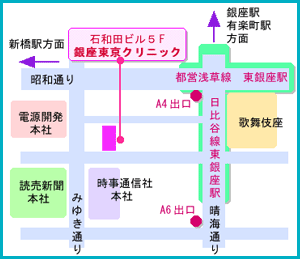メラトニンは卵巣がんに対するシスプラチンのアポトーシス誘導効果を増強する
メラトニンは卵巣がんに対するシスプラチンのアポトーシス誘導効果を増強する
タイトル(日本語訳):
『メラトニンは卵巣がん細胞SK-OV-3細胞において、ERK/p90 リボゾームS6キナーゼ/ヒートショック蛋白27の脱リン酸化を介して、シスプラチンによって誘導されるアポトーシスを相乗的に促進する』J Pineal Res. 2012 Mar;52(2):244-52.
【要旨】
シスプラチンによる卵巣がんに対する治療の効果を、メラトニンが高めるかどうかを検討するために、この実験は行われた。
ヒト卵巣がん細胞のSK-OV-3細胞に対してメラトニンは単独では細胞毒性を示さないが、シスプラチンは用量依存的に細胞生存率を抑制する。
シスプラチンとメラトニンを併用すると、SK-OV-3細胞の生存率を相乗的に減少させた。
一方、正常な卵巣細胞であるOSEN細胞に対しては、メラトニンはシスプラチンの細胞毒性からOSEN細胞を保護する作用を示した。
シスプラチン単独で投与した場合に比べて、シスプラチン+メラトニンを投与した場合は、がん細胞(SK-OV-3細胞)のsub-G1期のDNA量と、TdT-mediated dUTP nick end-labeling (TUNEL)-陽性細胞が増加した。これは、シスプラチンによる卵巣がん細胞のアポトーシス誘導をメラトニンが増強することを意味している。シスプラチンとメラトニンの併用投与はcaspase-3とpoly-(ADP-ribose) polymerase (PARP)の切断を増やした。
重要なことは、メラトニンはシスプラチンによって誘導される 90-kDa
ribosomal S6 kinase (p90RSK) とヒートショックタンパク( heat shock protein)27 (HSP27) を脱リン酸化させ、同時にextracellular signal-regulated kinase (ERK)のリン酸化を相乗的に阻害した。
さらに、シスプラチン投与によって誘導されるp90RSK とHSP27の発現と共存在(colocalizaton)をメラトニンは著明に阻害した。
これらの結果より、ヒト卵巣がん細胞SK-OV-3細胞のERK/p90RSK/HSP27 cascadeの不活性化を介して、メラトニンはシスプラチンによるアポトーシスを促進することが示された。
【訳者注】
シスプラチンを投与すると、がん細胞はシスプラチンに抵抗しようと細胞内シグナル伝達系を活性化してアポトーシスを起こしにくくするメカニズムが作用します。この耐性獲得にextracellular signal-regulated kinase (ERK)/90-kDa ribosomal S6 kinase (p90RSK) /ヒートショックタンパク( heat shock protein)27 (HSP27) のリン酸化が関与しており、メラトニンはこのリン酸化を阻害することによって、卵巣がん細胞に対するシスプラチンのアポトーシス誘導作用を増強するという結果です。
培養細胞を使ったin vitro(試験管内)の実験なので、生体内でどの程度効果があるかは不明ですが、卵巣がんのシスプラチン治療に対してメラトニンを併用する根拠になるかもしれません。
メラトニンについてはこちらへ
英文原文:
J Pineal Res. 2012
Mar;52(2):244-52.
Melatonin
synergistically enhances cisplatin-induced apoptosis via the dephosphorylation
of ERK/p90 ribosomal S6 kinase/heat shock protein 27 in SK-OV-3 cells.
Kim JH, Jeong SJ, Kim B, Yun SM, Choi do Y, Kim SH.
Source
College of Oriental
Medicine, Kyung Hee University, Seoul, South Korea.
Abstract
To evaluate melatonin's ability to enhance ovarian cancer cells to cisplatin treatment for ovarian cancer, this study was performed. Melatonin by itself had no significant cytotoxicity against SK-OV-3 cells, while cisplatin suppressed the cell viability in a dose-dependent manner. Combined treatment with cisplatin and melatonin synergistically inhibited the viability of SK-OV-3 cells with the synergism between two drugs (1 > combination index). In contrast, melatonin revealed the protective effect against cisplatin-induced cytotoxicity in OSEN normal ovarian epithelial cells. Cotreatment with cisplatin and melatonin increased the sub-G1 DNA contents and TdT-mediated dUTP nick end-labeling (TUNEL)-positive cells compared with cisplatin control in SK-OV-3 cells, suggesting that melatonin augments cisplatin-induced apoptosis. Consistently, combined treatment of cisplatin and melatonin increased the cleavage of caspase-3 and poly-(ADP-ribose) polymerase (PARP). Importantly, melatonin synergistically inhibited the phosphorylation of extracellular signal-regulated kinase (ERK) along with dephosphorylation of 90-kDa ribosomal S6 kinase (p90RSK) and heat shock protein 27 (HSP27) induced by cisplatin. Furthermore, melatonin remarkably blocked the expression and colocalization of p90RSK and HSP27 by combination treatment with cisplatin. Taken together, our findings demonstrate that melatonin enhances cisplatin-induced apoptosis via the inactivation of ERK/p90RSK/HSP27 cascade in SK-OV-3 cells as a potent synergist to cisplatin treatment.






